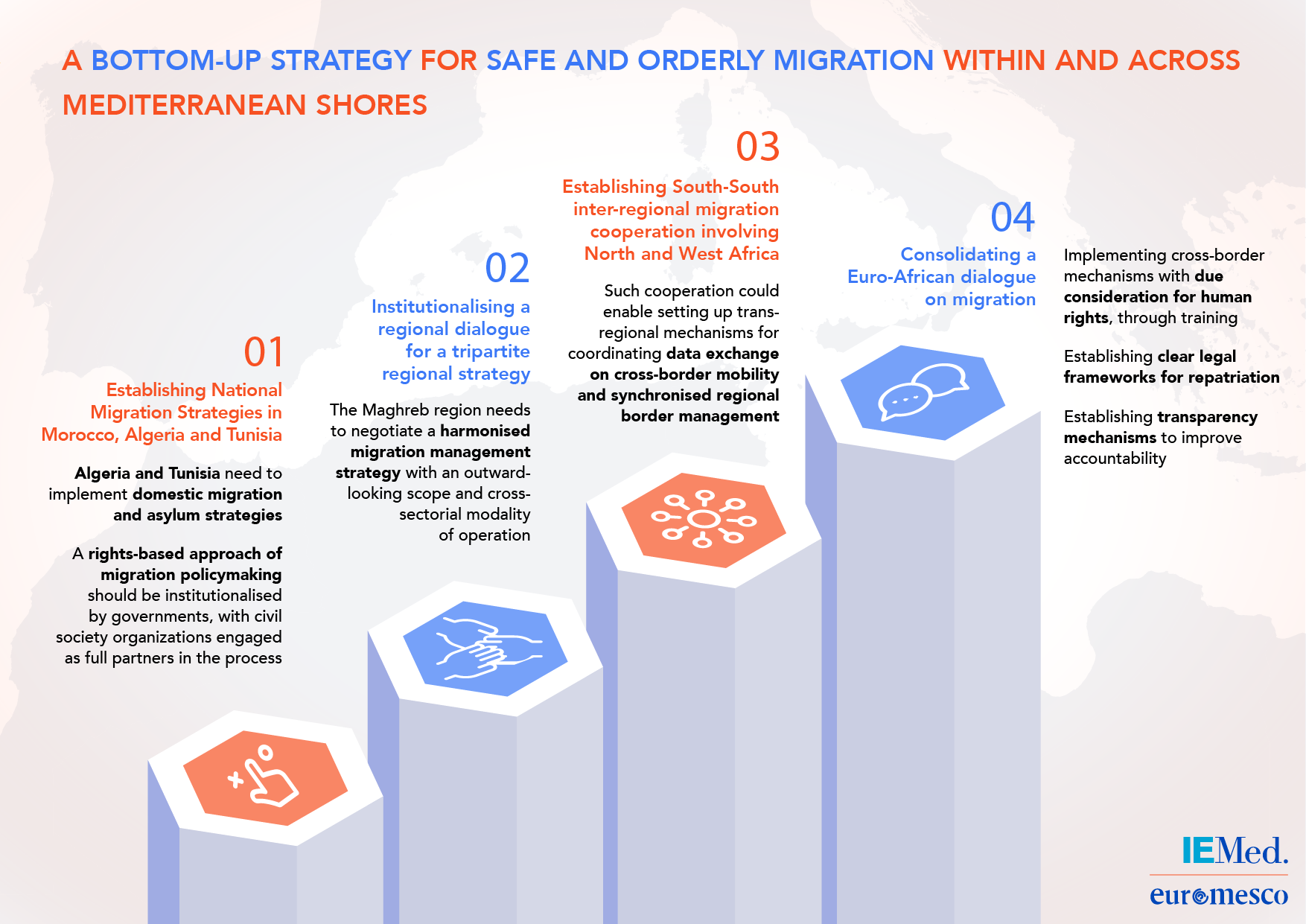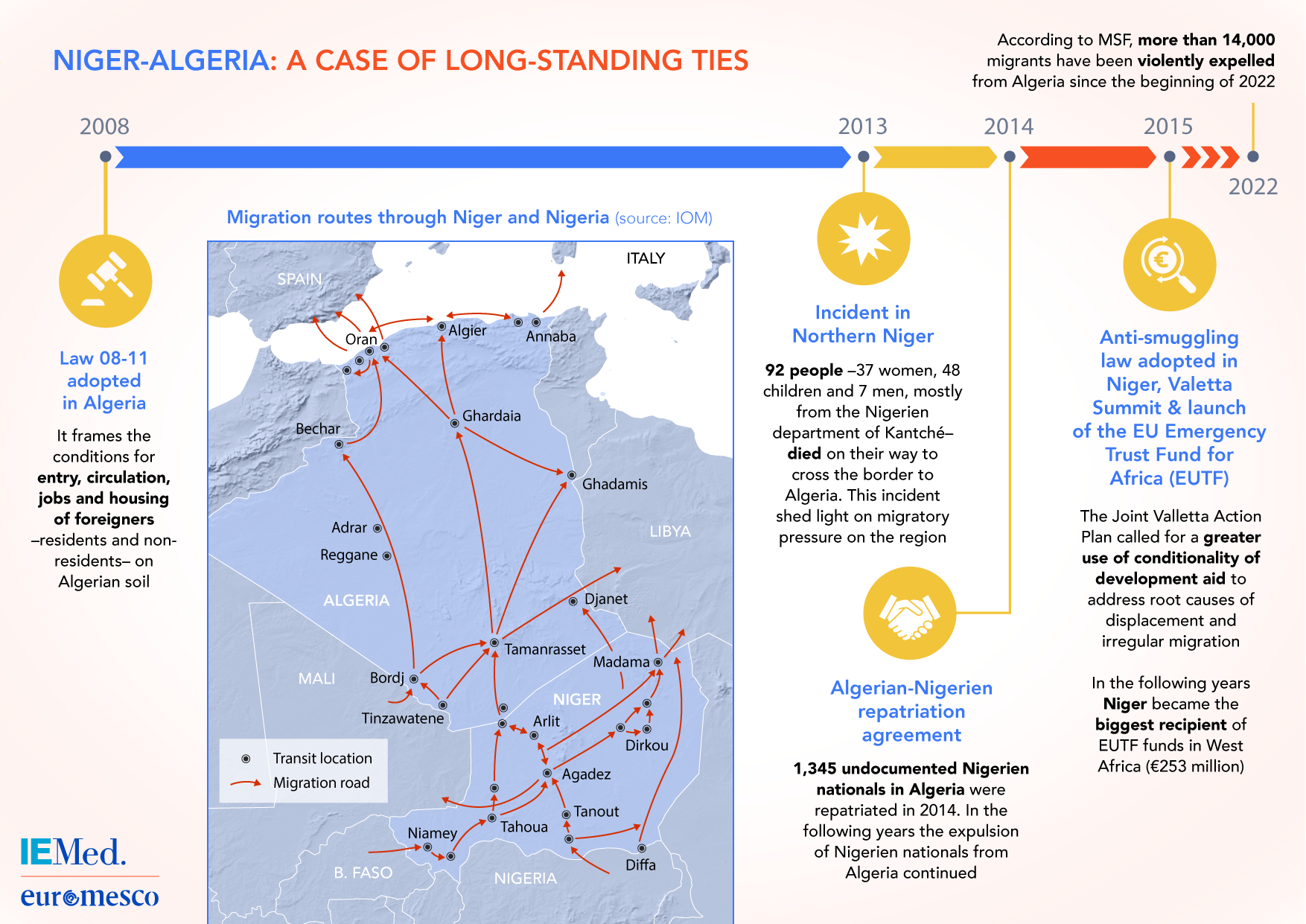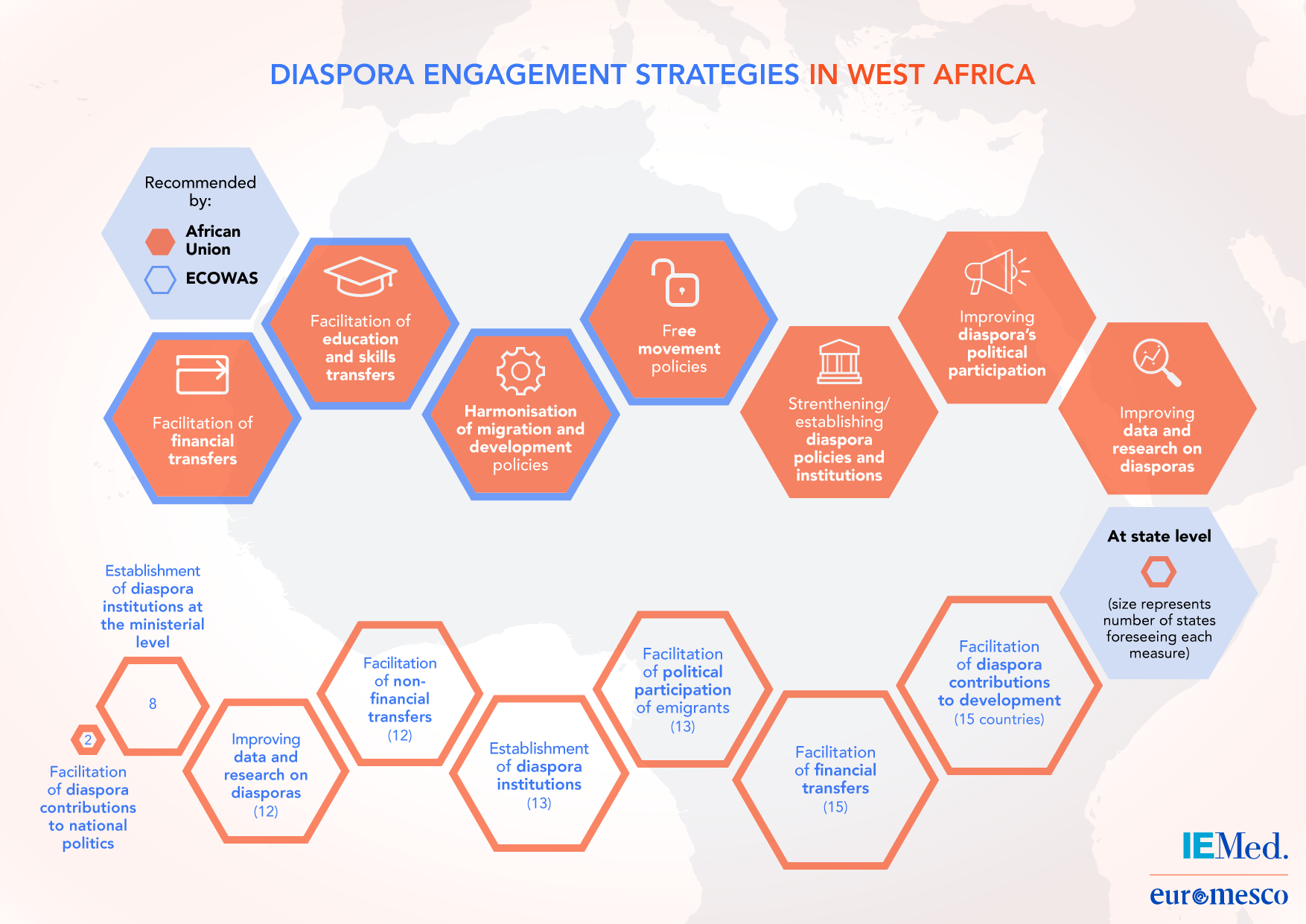
Joint Policy Study / Policy Study
Algeria, Morocco, Tunisia: A Comparative Perspective on Maghreb Countries Migration Cooperation with their West African Neighbours


Abstract
In February 2022, the European Union (EU) and African Union (AU) both committed, in a Joint Vision to works towards an “enhanced and reciprocal partnership for migration and mobility”. Meanwhile the EU is still aspiring to carry into effect the pending New Pact on Migration and Asylum, particularly as part of the fourth objective of the New Agenda for the Mediterranean (“jointly address the challenges of forced displacement and irregular migration and facilitate safe and legal pathways for migration and mobility”).
The ability to reach these objectives and to re-impulse cooperation with regards to migration management is conditioned by the cooperation schemes between the EU and its Southern partner countries, and between Southern partner countries themselves.
The transition North African countries have experienced from emigrant into transit and destination countries from migrant, marks a turning point in the migratory history of the region. North and West Africa’s demands for ensuring safe and humane migration flows and management continue to be challenged by the continuous influx of sub-Saharan mobility. Against this background, there is a growing need to strengthen South-South, North-South and South-North cooperation by harmonising the management of various aspects related to human mobility, such as synchronising national and regional border management; ensuring the implementation of cross-border migration human rights mechanism; enforcing regional and trans-regional diaspora engagement and the involvement of domestic civil society actors in policy legislation processes. These steps need to be taken in order to ensure due protection of the living conditions of immigrants and people on the move in the region.
This Joint Policy Study addresses these considerations through three individual contributions structured in four chapters. The first chapter analyses national and regional policy frameworks in place, looking at three Maghreb countries: Algeria, Morocco and Tunisia. The second chapter examines the regional and trans-regional relevance of West African diaspora policies. The third chapter assesses the Algeria-Niger bilateral cooperation in the light of the EU borders’ externalisation process and the last chapter analyses the role of civil society organizations in the policymaking consultations in the Maghreb.






